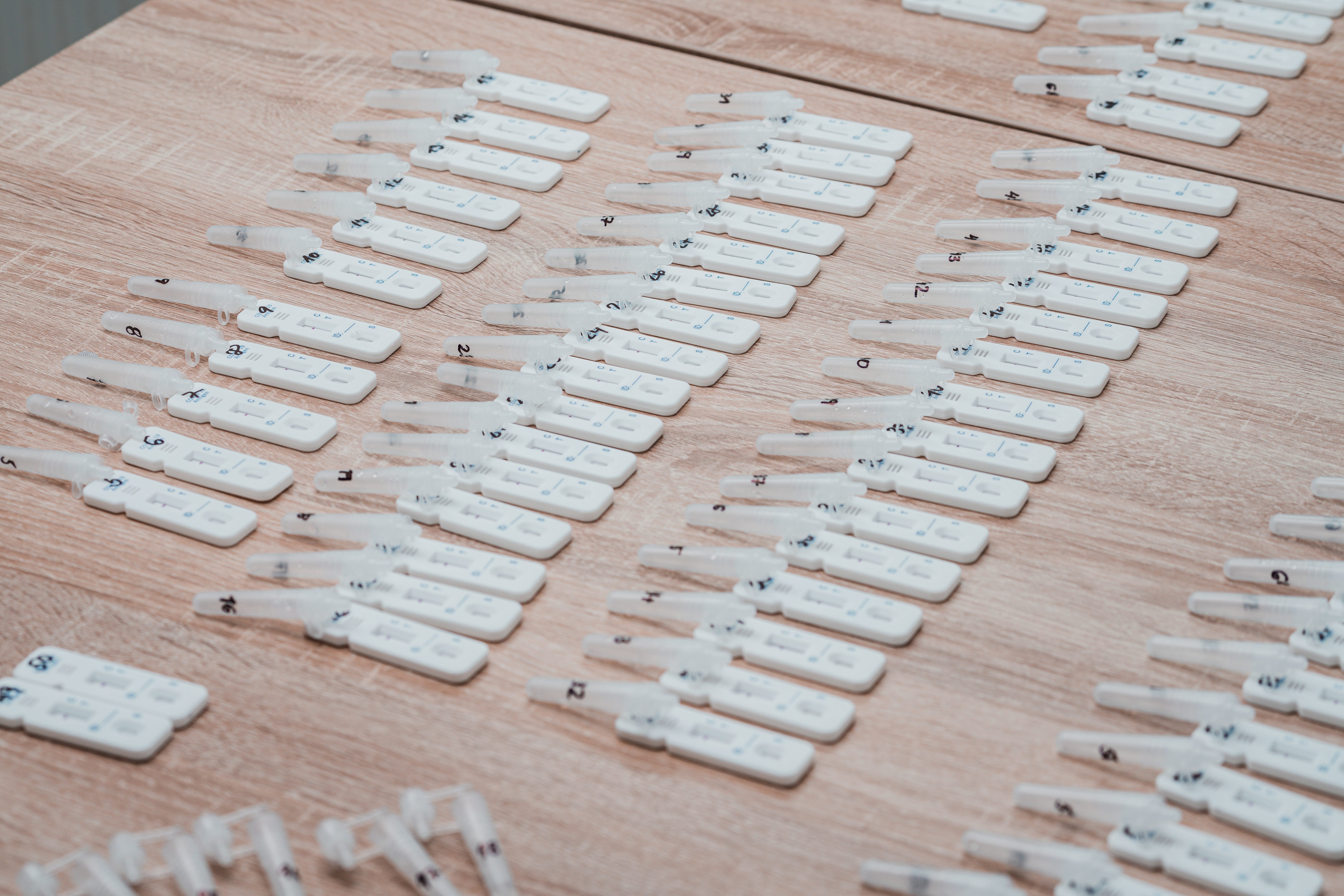1/24/2022
Since Tuesday of last week, Americans have been able to access a new website created by the Biden administration to order up to four at-home coronavirus test kits for each household. This comes as a response to the severe shortage of rapid antigen test kits across the country, with some retailers even limiting the number of kits that individuals can purchase.
Within the first few hours of the site’s launch, people noticed that there were many issues. Americans living in apartment buildings reported that they were blocked from ordering tests if other tenants had already inputted the complex’s address into the shipping form. Others were met with messages stating that tests could only be shipped to valid residential addresses when they requested to send their kits to post office (P.O.) boxes. With such a high demand for tests, it is unfortunately no surprise that the website experienced a number of glitches on its first day.
Directly mailing tests is not a novel idea. For the past ten months, the United Kingdom has implemented a widespread testing program in which each resident is able to order a pack of seven rapid tests a day. Directly sending kits to citizens through the United States Postal Service (USPS) increases access to and faster implementation of tests, especially for people who may not have the ability to pay the often pricey upfront costs. The White House has also stated that the first 20% of tests will be shipped to zip codes that have the highest rates of COVID-19 cases and deaths, which allows regions that have been disproportionately affected by the virus to obtain them first.
However, only allowing an equal amount of test kits to each household without accounting for the number of people living under a single roof erases the diverse makeup of families in the United States. Hispanic, Asian, and Black people are much more likely to live in households with more than four people compared to white Americans. The Kaiser Family Foundation found that 36% of Hispanic people live in households with more than four people, followed by 25% of Asian Americans and 23% of Black Americans. Conversely, a report found that white Americans make up 68% of sole-person households. Hispanic, Asian, and Black people are also more likely to live in multi-unit structures, and Hispanic and Black Americans are less likely to have access to reliable Internet connection, making it increasingly difficult for them to order tests. Additionally, people of color are more likely to work in non-remote jobs and therefore have an increased need for tests.
Last week’s events regarding the federal government’s steps to combat the spread of COVID-19 have been good news for some, but this is not the case for all. Is the Biden administration fulfilling its duty to provide for the American people amidst these trying times? And although PPE, test kits, and other essential supplies are in very limited supply, is there more that can be done to give Americans better access to them? Unfortunately, the conditions of this most recent test kit rollout is yet another instance of inequity in healthcare. Policies that do not account for underlying differences will only continue to widen the disparities that we have already been witnessing during the pandemic.

